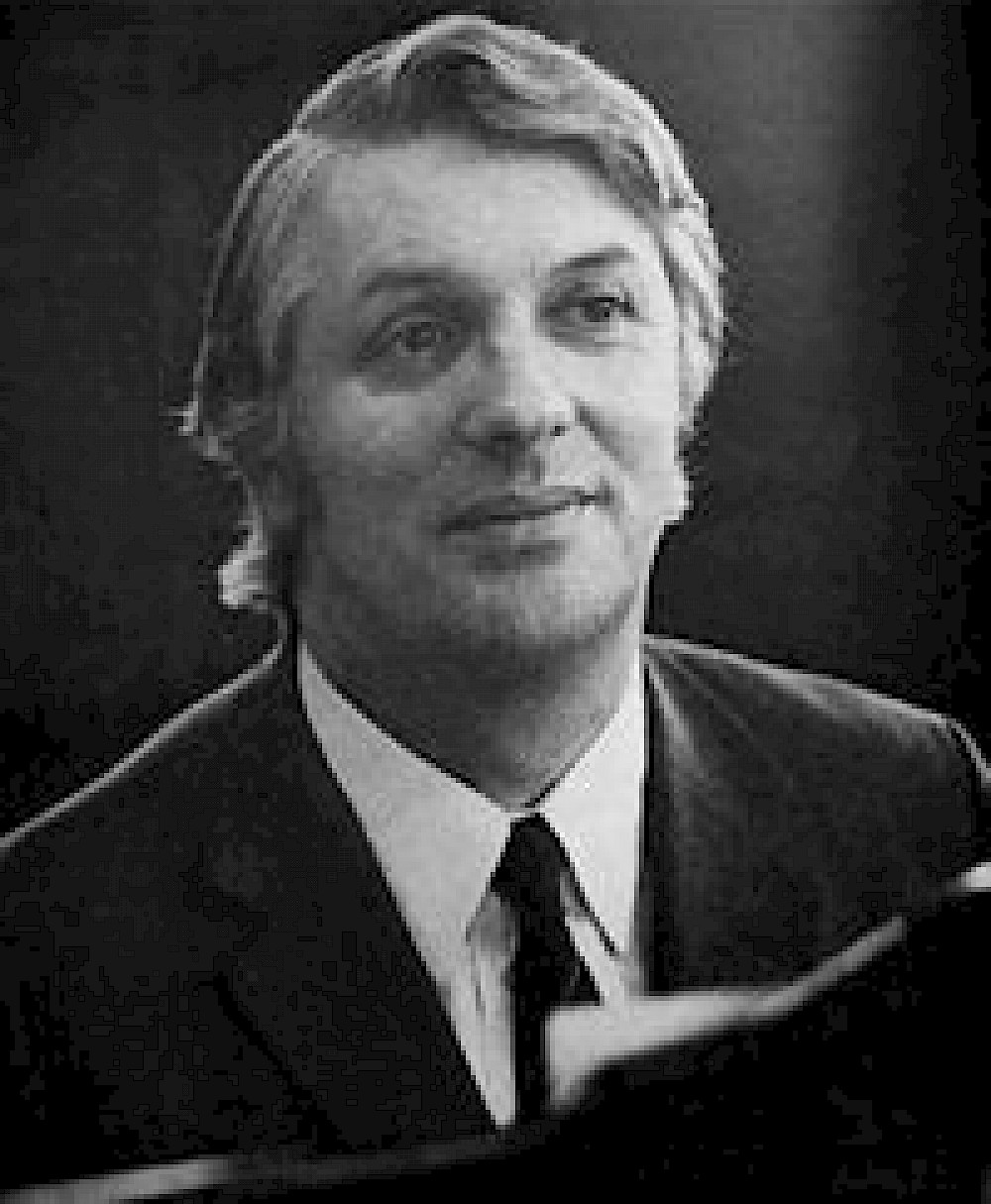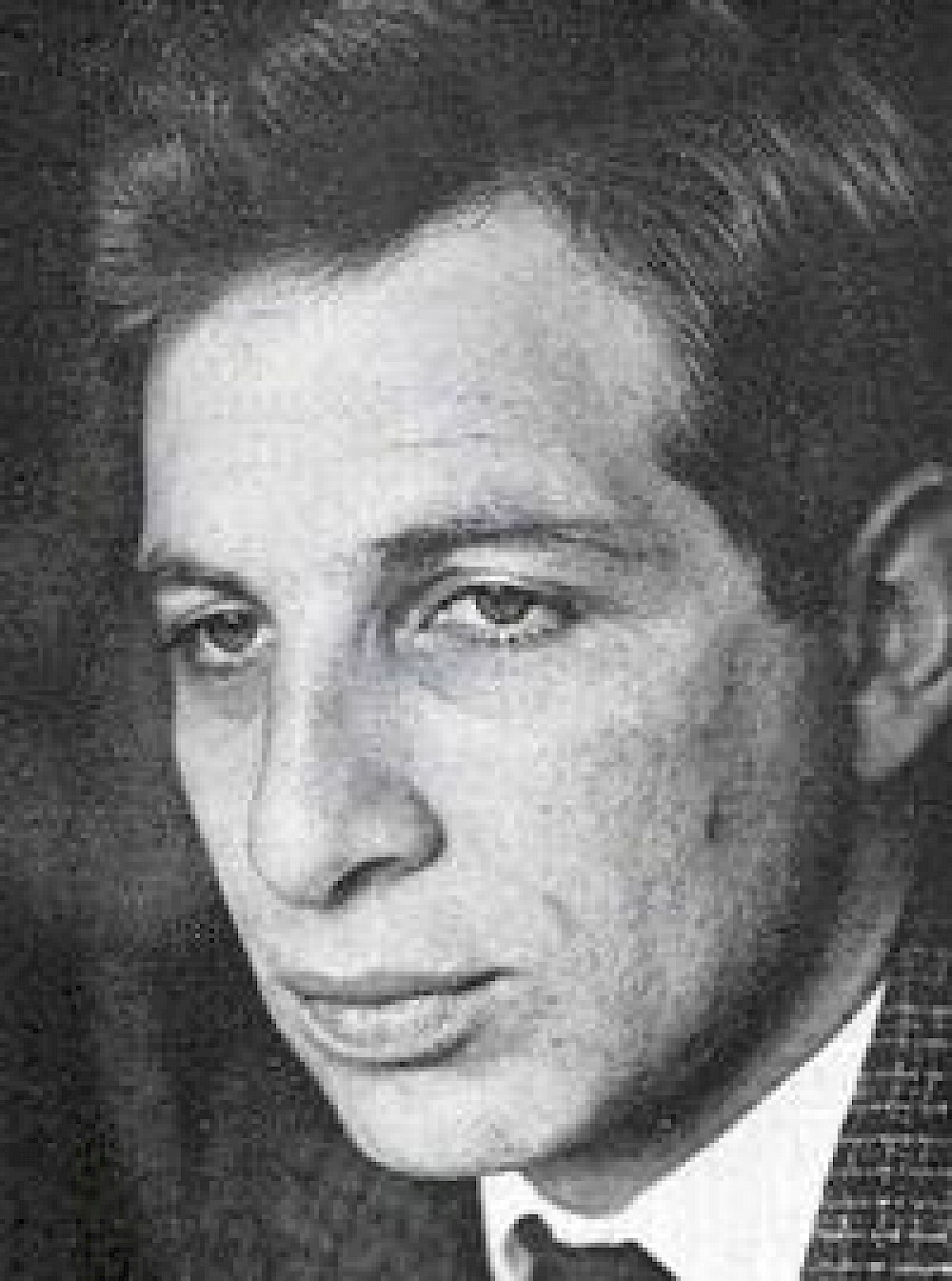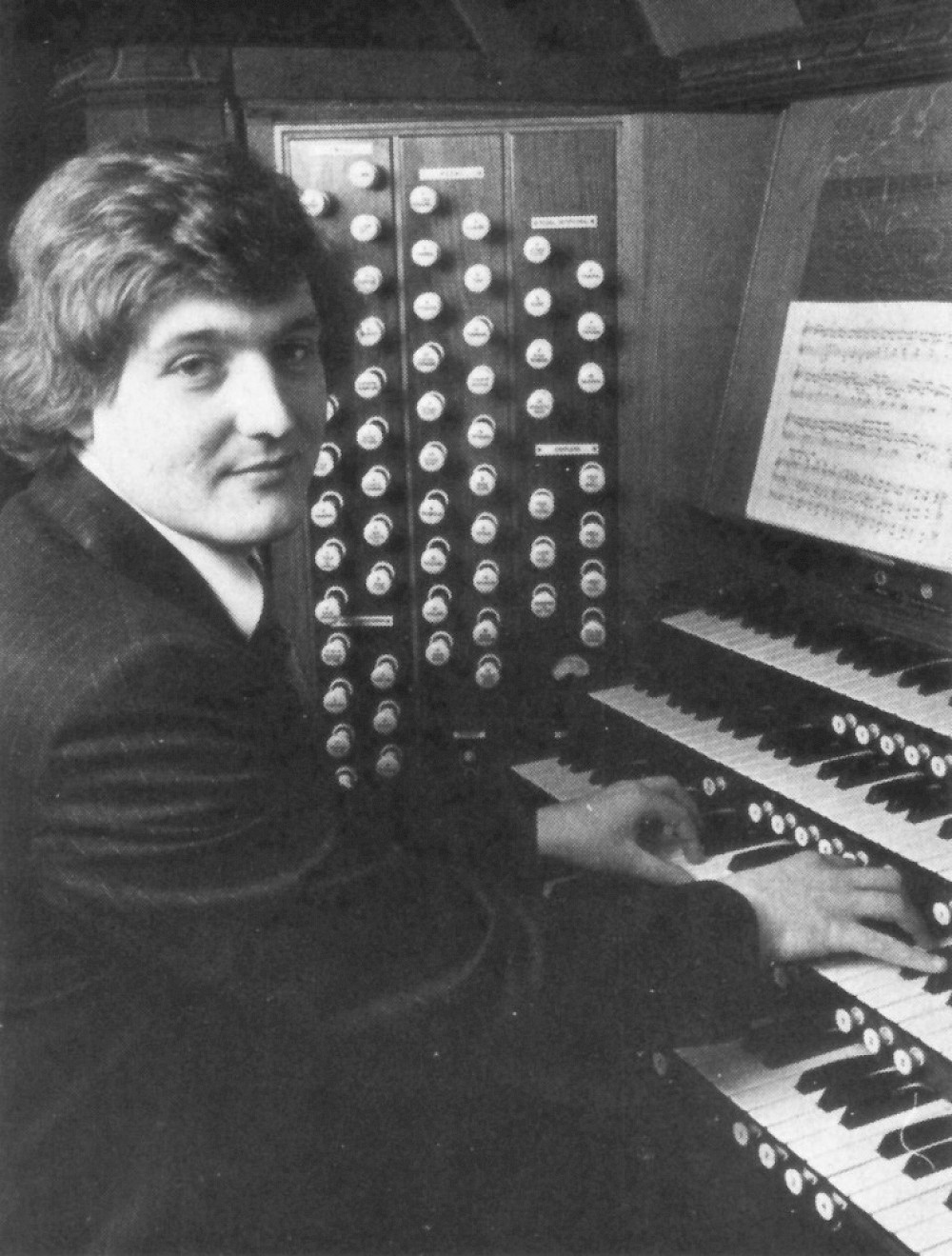
1970 brought a break with tradition made by the Festival’s artistic director, the Earl of Harewood. He inaugurated a new Chorus of two hundred voices instead of the customary three hundred. He told Michael Colbert in the Yorkshire Post:

This ‘streamlined’ Chorus opened the Festival with Handel’s Israel in Egypt, with the English Chamber Orchestra conducted by Charles Mackerras. As it was two hundred years since the birth of Ludwig van Beethoven, the Festival closed with his Missa Solemnis, for which the soprano soloist was Heather Harper and the conductor Carlo Maria Giulini.
The main commission in 1970 was Lumina by David Blake, lecturer in music at the new University of York. It was inspired by the poetry of Ezra Pound. Donald Hunt told the press that by the time he had finished with them, the Chorus would sing this difficult work “as comfortably as Messiah.” They did, conducted by Meredith Davies and with Hunt singing with the Chorus. The piece was enthusiastically received, Gerald McDonald, the general manager of the New Philharmonia Orchestra, comparing it with Belshazzar’s Feast. It was performed again in July at the Royal Festival Hall in London.
There was a Festival Club in the Old Robing Room of the Town hall which achieved high success with bookings for dinner, both before and after the concerts. The Festival Chairman, Jack Lyons, hoped that Leeds would soon have a proper concert and conference hall, “with the Common Market in mind”.
In 1972 the Town Hall had been cleaned and the organ renovated. The Festival was a year earlier than usual and the ‘triennial’ had been dropped. There was a traditional opening – Handel’s Saul – that occupied two evenings and which was recorded by Deutsche Grammophon Gesellschaft. (The same company had recorded Israel in Egypt in 1970.) Charles Mackerras was in charge. Other choral works included Mozart’s Requiem and Sir Michael Tippett’s The Vision of St Augustine. Belshazzar’s Feast was the Saturday climax, with Charles Groves conducting.
Now that the Festival Chorus was reconstituted, it was traveling more, for example to a concert in Huddersfield Town Hall in April 1973 with the BBC Northern Symphony Orchestra and the BBC Northern Singers, conducted by Bryden Thomson. In January of the same year, the Chorus sang in a Celebration Concert to mark Britain’s entry into the Common Market (Act One of Israel in Egypt, Verdi’s Hymn to the Nations) in Leeds Town Hall. Fifty people held placards and handed out leaflets outside, one of them wearing a Ted Heath mask and carrying a model yacht.
The costs of the Festival were the subject of press speculation in April 1974, when the Earl of Harewood was artistic director for the last time. The figure of £40,000 was mentioned. The 1974 opening was in Leeds Parish Church, with Bach’s St John Passion with the Yorkshire Sinfonia conducted by Donald Hunt. Belioz’s Grande Messe des Morts opened the Festival two days later at the Town Hall. This concert marked the return of the BBC Symphony Orchestra and the first Leeds appearance of its conductor Pierre Boulez. A performance of Fricker’s commissioned work Sun-Flower did not take place, but The Dream of Gerontius and Britten’s Spring Symphony did.

Professor Alexander Goehr from Leeds University was appointed as artistic director of the 1976 Festival, and young conductor John Alldis, Professor and Fellow of the Guildhall School of Music in London, was appointed as Chorus conductor. The Festival Chorus had a new chorus master as well, the twenty-five year-old Simon Wright, who was on the music staff of Ampleforth College. In an article in the Yorkshire Post, Michael Colbert wrote:
In the same article, Anthony Tapp, the chairman of the Festival executive committee, talked about incorporating new ideas “while also retaining many important features of the past”, one of which was an opening performance of Elijah at the Town Hall. This was described as “the Festival’s swan song at the Town Hall” because of the encroachments of the Law Courts. The other concerts were at Leeds Grand Theatre.

In 1976 there was a concert to mark the anniversary of the American War of Independence under the direction of Aaron Copland, and among the other choral works were Stravinsky’s Les Noces, and Berlioz’s Childhood of Christ conducted by Colin Davis. Chorus secretary Marie Holland was quoted as well, describing Chorus members as “working like Trojans week in and week out to achieve perfection.”
In 1978, Marjorie Hodlin became the Chorus accompanist, a post she held until 2015.
The Festival in May 1979 was centred around Franz Liszt, and one event which went particularly well was in St Aidan’s church in Roundhay Road. It featured, amongst others, the monks of Ampleforth Abbey in a concert of Venetian music for brass, wind and chorus. The music was by Gabrieli, Monteverdi, Zielenski and Schutz. Most of the other concerts took place in the recently-restored Victoria Hall at the Town Hall. Artistic director was John Warrack. Liszt supplied plenty of choral fodder: Via Crucis, Psalm XIII and the lovely male voice finale of the Faust symphony.